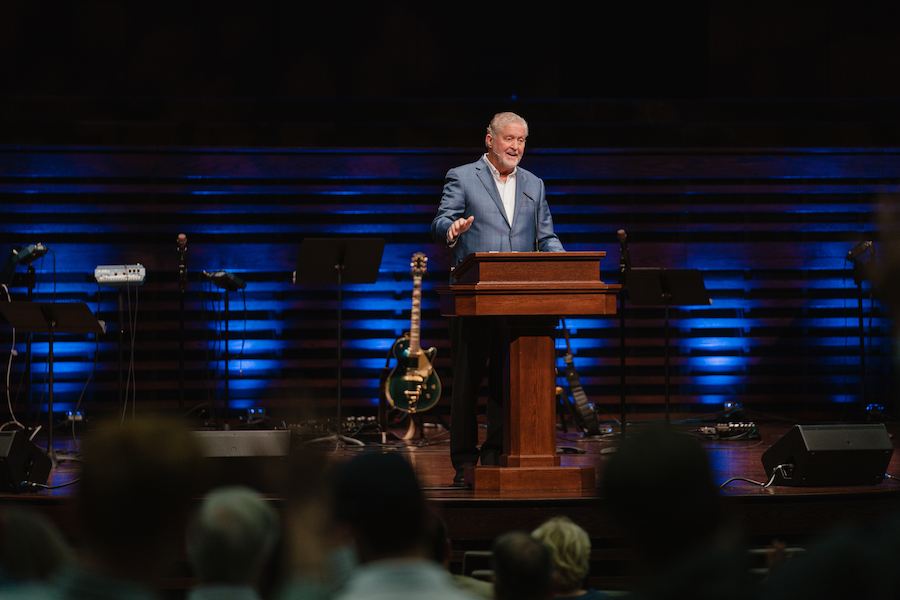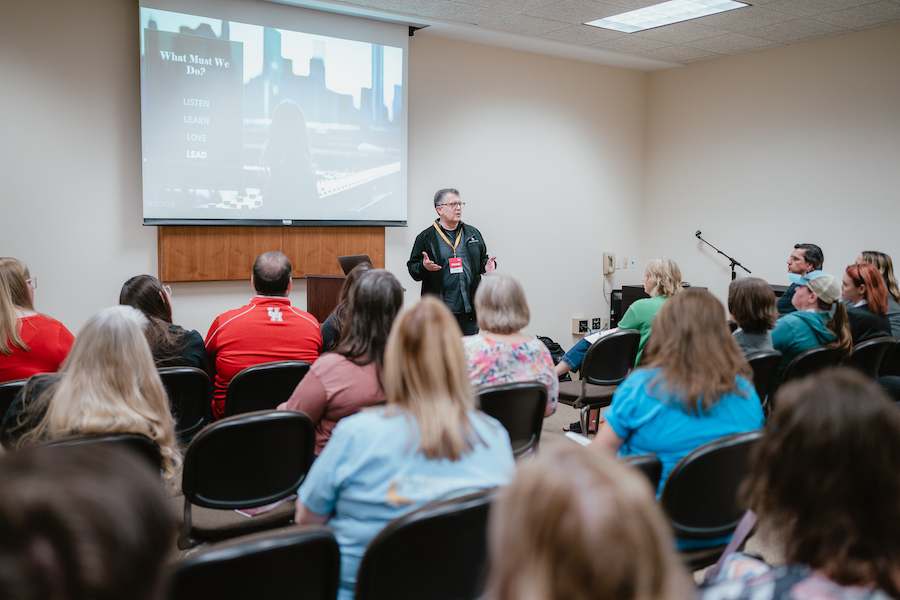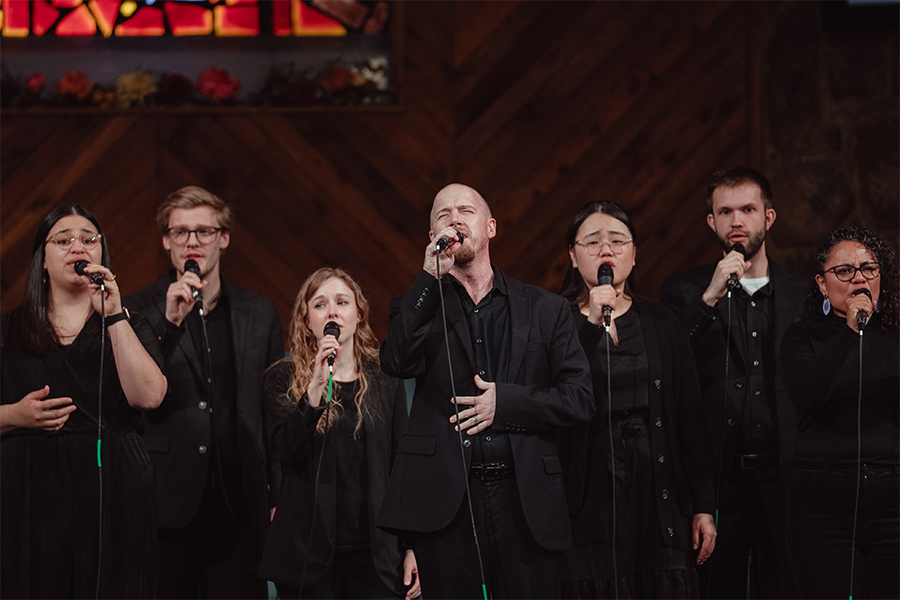Two people profess faith in Christ when evangelist invites response


With five years of pastoral ministry and plenty of personal and mass evangelism experience, David Earnest is comfortable sharing the Gospel. Inviting his listeners to respond to the Gospel message, however, is sometimes intimidating in a one-on-one encounter.
But after a few sessions of Contemporary Evangelism taught by Associate Professor of Evangelism Matt Queen, Earnest, a second-year Master of Divinity student at The Southwestern Baptist Theological Seminary, has started being intentional about extending invitations. Combined with the movement of the Holy Spirit, these invitations have recently resulted in two young men professing faith in Christ.
The first is named Jordan. Earnest met Jordan at a hardware store earlier this semester while purchasing supplies for his construction job. Earnest struck up a conversation with Jordan, a store employee, and quickly brought up the matter of spiritual beliefs.
Jordan said he believed he would go to heaven because he is a good person, so Earnest took the opportunity to share the Gospel with him.
“You could see in his face that he was really interested in what we were talking about,” Earnest says. “So I gave a full explanation of the Gospel—the justice of God, the holiness of God, and the love of God that would send His Son to the cross to die a substitutionary death for us.”
When he concluded, instead of simply encouraging Jordan to think about what he shared and then leaving, Earnest recalled what Queen had taught in class. Specifically, Queen said that evangelists must always call for a response after sharing the Gospel.
With this in mind, Earnest said to Jordan, “What about you? Do you feel like you’ve come to a place in your life where you’re ready to ask God to forgive you of your sins and surrender your life to the lordship of Christ?”
Jordan replied, “I am.”
So, there in the store parking lot, Earnest led Jordan to confess his sins, believe in Jesus’ death and resurrection, and surrender to Him as Lord. Recalling more of Queen’s teaching, Earnest then obtained Jordan’s contact information so that he could later follow up with him.
Two days later, Earnest returned to hardware store for more supplies, and he saw Jordan and another employee, Gabriel. Jordan greeted Earnest enthusiastically, and the three of them talked briefly. Before Earnest left, he told Jordan, “It’s your responsibility now to share with Gabriel what I shared with you.” Jordan replied, “I’m about to right now.”
That same week, Earnest found another evangelism opportunity at an auto parts store. The store was empty, he says, save for him and the employee at the check-out counter, also named Gabriel.
Earnest began conversing with him, first speaking to the biblical significance of his name. Earnest then shared the Gospel with him and asked where he thought he would spend eternity. Like Jordan had shared previously, Gabriel believed he would go to heaven because of his good morals.
Earnest related the Bible’s teaching that no one is righteous, and therefore no one can go to heaven on that basis. This segued into an explanation for why Jesus came to earth.
“Jesus fulfilled the requirements of the law and then laid down His life in our place,” Earnest said. “So that’s the only basis by which anyone will be accepted by God.”
Once again, instead of simply concluding the conversation there, Earnest then asked whether Gabriel felt ready to trust in Jesus alone for salvation. Gabriel answered, “I am.”
Earnest prayed with him in the store and got his contact information to follow up with him. When Earnest texted him that night, Gabriel responded, “Thank you for today. Honestly, man, I can’t tell you how much I needed that.”
Earnest reflects on these two experiences, “It’s pretty exciting—just being courageous. … It really just encourages you after you’ve had a couple of those opportunities to share the Gospel.”



